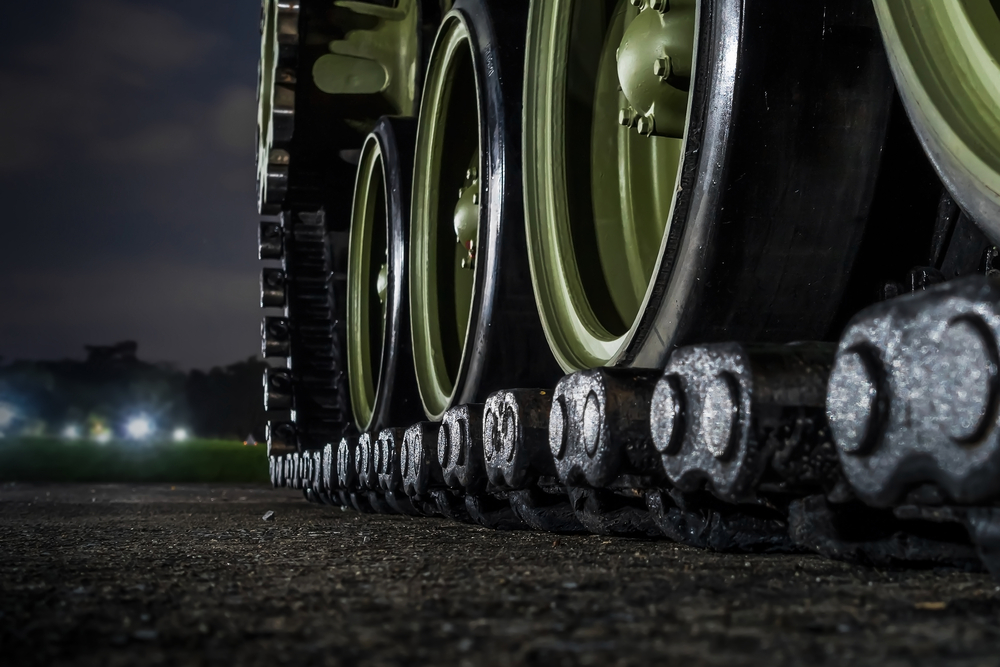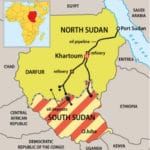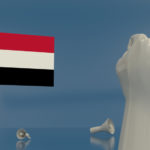Military Coup in Sudan

Political tensions are high in Sudan as a military coup has ousted the government of long-term President Omar al-Bashir.
Story
The government of Omar al-Bashir was toppled on the morning of 11 April 2019, when the Sudanese Armed Forces took control of the country as protests were happening against al-Bashir.
Omar al-Bashir was the President of the country for about 30 years. Protests started since 19 December 2018 with the main agenda of the people regarding dramatically rising costs of living and the reduction of the country’s economy.
However, the protests became stronger and people started calling for the resignation of the President who was in office for about 30 years.
Omar al-Bashir took the matters of the protests and resignation-calling serious and declared a state of national emergency. This was the first time a national emergency was implemented in the country for about twenty-years.
On the morning of the military coup, the military dissolved the cabinet of the President and the National Legislature. To calm down the protests, they announced a 3-month state of emergency which will follow a 2-year transition period.
Lieutenant general became the de facto Head of the State. He was the Defense Minister and the Vice President of the country before imposing a coup.
He suspended the constitution of the country and imposed a curfew to diffuse the ongoing protests situation. The timing of the curfew was from 10 pm to 4 am.
He also decided to release the political prisoners of al-Bashir’s tenure. Al-Bashir’s party National Congress decided to retaliate and arrange rally to support the ousted President.
On 12 April, the military government changed their stance and agreed upon shortening their rule length to as short as a month and also agreed on transferring thee reign of the country to a civilian government if negotiations are successful.
Lieutenant general Auf decided to shift the powers to Lieutenant general Abdel Fattah Abdelrahman Burhan. Lt. Gen serves as the general inspector of the armed forces.
Lt. Gen is considered a less controversial figure than Lt. Gen Auf.
On 13 April, Lt. Gen. said through his first televised address that the curfew has been lifted and all prisoners are being released.
Before this address, the military council released a statement to the Sudanese television that intelligence and security chief Salah Gosh had resigned. This ensured the transition into a civilian government as Salah Gosh oversaw the crackdown against the protesters who were anti-al-Bashir.
There were calls from many people that this transition in the civilian government is nothing change.
On 14 April, the council announced that they would let the protesters nominate a civilian Prime Minister and the cabinet except the ministries of Defense and Interior.
It was also announced that they have removed Lt. Gen. Auf as Defense Minister. They also appointed Lt. Gen. Abu Bakr Mustafa as the successor of Salah Gosh.
On 15 April, Military council spokesperson Shams El Din Kabbashi Shinto announced that the former ruling party National Congress Party will not be part of the transitional government.
Prerequisites of a Coup
A coup or coup d’état happens because of many reasons. There is not a single reason that can call for a coup or a coup to happen. It is the mixture of many things that can contribute to a coup to occur in a country.
According to Clayton Thyne and Jonathan Powell’s coup dataset, there were about 457 coup attempts from 1950 to 2010 with about half of them being successful.
Some of the reasons that a coup can happen include:
- Officer’s personal grievances with the civilian government
- Military’s grievances with the civilian government
- Economic Decline
- Domestic political and social issues
- External Threats
- Conflict of Interest of military and government
- Foreign interference in the country
A coup has the maximum chance of being successful when there is support of the people. People support military’s stance when they think that the government is unable to provide them with economic, political, social and geographical strength.
Participation of Mercenaries
This coup in Sudan was a peaceful one and there was no bloodshed in the transition from civilian government to military government. In this coup, there was no physical resistance from both sides. In the scenario of a coup, there is majority chance that foreign powers play their part in making sure that military takes over. This creates a scenario of uncertainty and it gives the warmongers and mercenaries to exploit the situation and benefit from the high political tensions. In this Sudanese coup, mercenaries didn’t get the chance or were not motivated enough to reap the chances.
Reaction of International Leaders on Sudan’s coup
Following the military coup in Sudan, many countries and international bodies have expressed their views on the current situation.
The United Nations have urged that the new military government don’t use violence or any physical means against the peaceful protestors of the country.
The African Union has criticized the actions of the military. They have said that a coup is not the answer for the challenges of the Sudanese people. The chairperson of the African Unions Moussa Faki Mahamat has cited provisions of the Lomé Declaration of 2000 which indirectly condemns the actions of the Sudanese government.
The European Union says that they have a close eye on the country’s situation and are monitoring what is going on. They have advocated peace and urged the leaders to ensure a peaceful transition.
Egypt has said that Sudanese people’s priorities must be addressed and they stand with the people.
France has also expressed the same thoughts that the priority of the government needs to be Sudanese’ priorities.
Germany has urged them to find a peaceful process to diffuse the current power crisis.
Russia has taken a hard stance on this matter. Many of the country’s lawmakers have condemned the actions and the people who were part in this coup. They have called for a democratic way out of this mess.
Turkey says that they hope that a ‘normal democratic process’ will follow the coup by the military.
The United States have said that a peaceful transition should happen after the military coup and the transition should be carried out by a civilian government. The transition should also happen before two-years.
Consequences
A coup always has good or bad consequences. Sudan is at a very crucial stage in their life. They were ruled by a President who was in office for about 30 years. The military has taken over and promised a smooth civilian transition. If the promises are not held by the military, then Sudan can face a lot of problems domestic and foreign-wise.
The main reasons the people of Sudan went to the roads and protested al-Bashir’s reign was the slow economic situation and the rise in costs of living.
The new government needs to address these issues. If these issues are not addressed and taken care off, the people can go to the roads once more.
Many European countries are looking into the situation of the coup. The United States have also urged them to ensure a peaceful transition into a civilian government within two years.
If the promises are not met, Sudan can face a lot of international sanctions. Foreign countries can put financial and economic constraints on them which will slow down the progress of the country.
They can be isolated due to the international constraints on them. The aftermaths of a coup can be adverse if the necessary actions are not taken in time and the transition is extended.
This is the world in which you need to have good strategic and diplomatic relations with other countries. Isolation is very dangerous in this warmongering world.
Sudan needs stability after the events which started in December of 2018. Stability can be attained only when the needs of the people are the priority of the government.
By Andrew Davis










